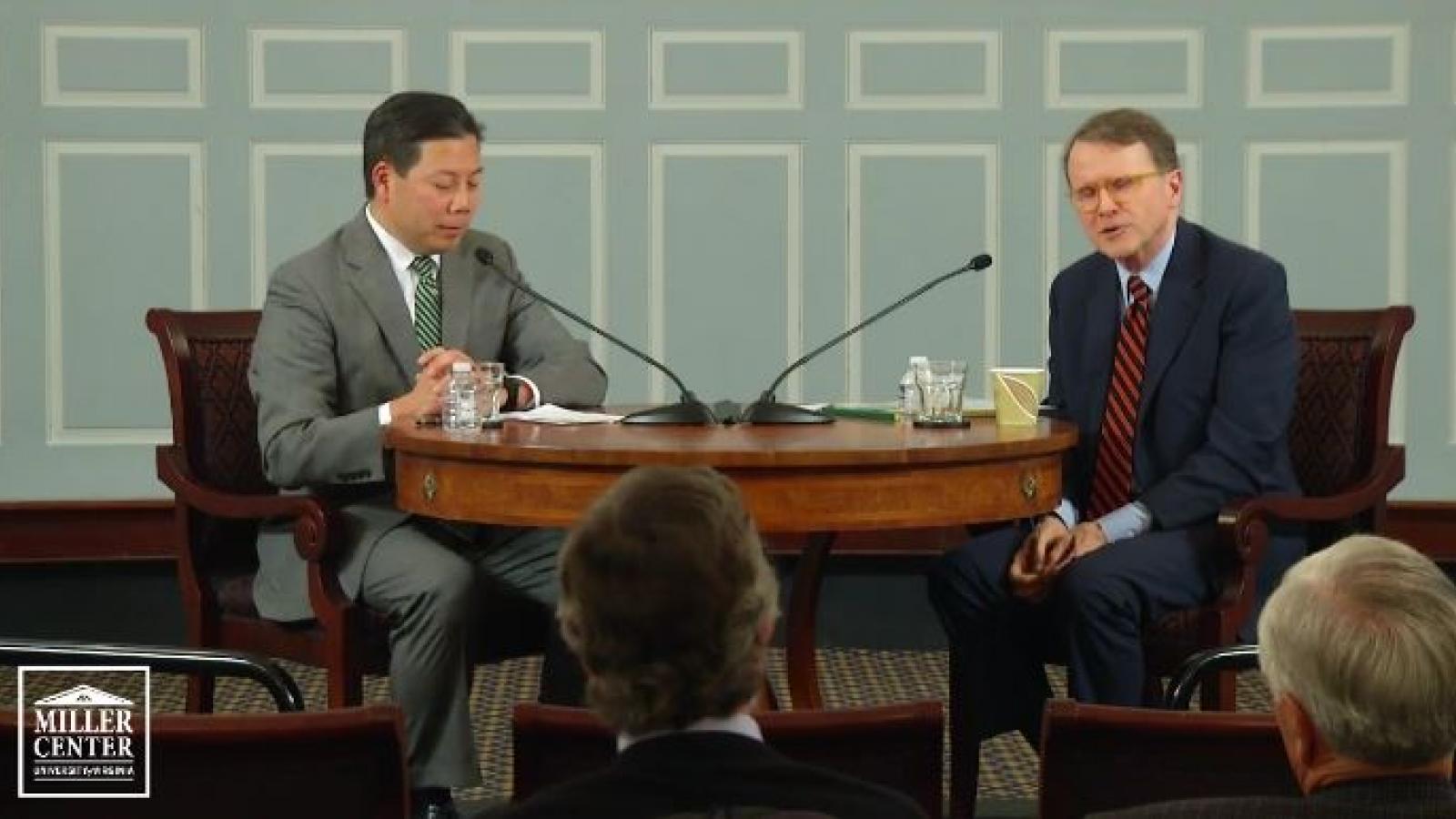From Unions to Uber
The future of work in America
As experts and pundits scrambled to explain the surprise election of President Donald Trump, much was made of the economic anxiety of large swaths of American workers, individuals who had seen well-paying jobs lost to outsourcing or automation and saw little hope for the return of the sort of economic mobility and stability that seemed available to previous generations.
Although the president has vowed that his policies will do much to restore and strengthen the job market, his administration’s efforts will come against a backdrop of a fundamental shift in the nature of work in the United States, as technology-enabled companies produce more with fewer employees and the rise of the “gig economy” brings about new opportunities, but often with fewer safeguards.
Darden Professor and Dean Emeritus Robert F. Bruner and Chris Lu, a senior fellow in presidential studies at the Miller Center and former deputy secretary of labor in the administration of President Barack Obama, offered perspectives on the likely future at a recent Miller Center forum, “From Unions to Uber — the Future of Work in America.”
Bruner opened his remarks with what he described as a trio of potentially worrisome numbers:
- 8: the percentile that the United States holds in a recent listing of startup nations (measuring the volume of new businesses with paid employees relative to existing companies)
- 11: the percentage of the workforce that moves every year, a figure in decline
- 53: the percentage of undergraduates who complete their undergraduate degrees within six years
Taken together, Bruner said the numbers show a country with a workforce that may continue to struggle in the near-term, particularly as the jobs of the future require an increasingly skilled, flexible workforce.
Lu noted the period of increased automation that shows no signs of abating, a trend that will touch nearly all industries.
The former deputy labor secretary cited his work with a startup company run by millennials that seeks to disrupt the government relations industry through big data and predictive analysis.
“You can find ways to automate even something you would consider a high-skilled profession,” Lu said. “From the auto plant to lobbying, big data is going to transform all of that.”
How the country responds to the looming shift remains a question mark, although both Lu and Bruner suggested that new and potentially more frequent modes of training could aid in adaptation.
As careers become more episodic, the traditional professional development metrics may also need to be retooled, with university or college training taking place throughout one’s life.
“My view is that we see a future oriented to a knowledge economy, so there is a need to train people for a knowledge economy,” Bruner said.
The former Darden dean suggested we as a country had not yet figured out how to instill a “flexibility” in the U.S. workforce that could help the population absorb the shock of a shift to new models of work and demographic changes. And while Bruner said he considered himself an optimist on the long-term health for the American economy and the workers who support it, in the short term, the country faces “significant challenges.”
Lu suggested the very nature of what the concept of work entailed was being recalibrated, a change the reach of which the country had not yet fully grappled with.
“We need a new paradigm and social contract for work now,” Lu said. “The law and norms we have right now were for a different time”
